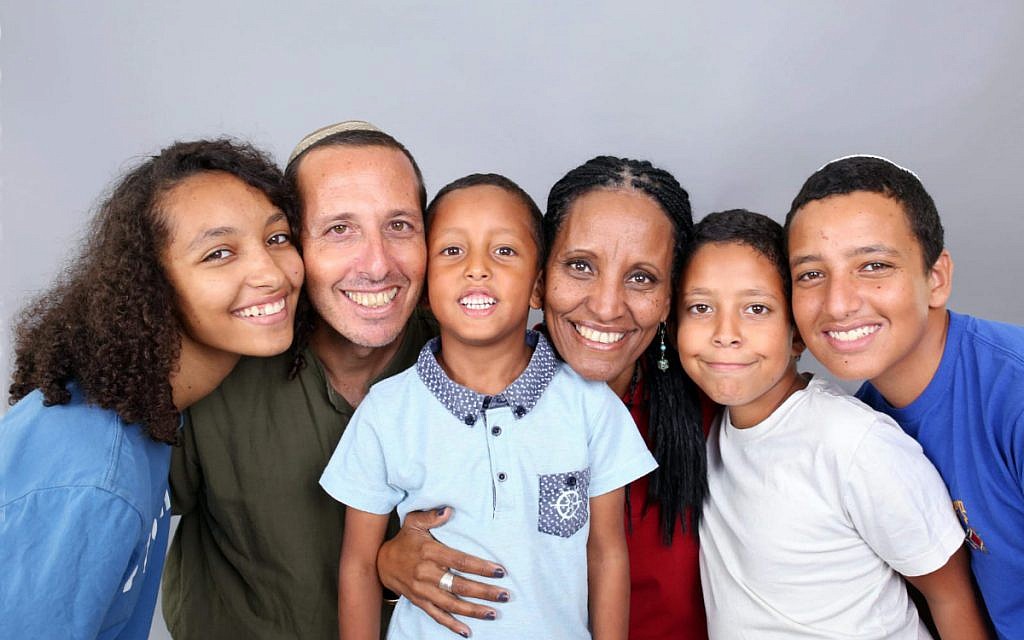Pesach: the Long Days – Journey to Jerusalem from Ethiopia
Sigal Kanotopsky, the head of a charity called Olim Beyahad, recalls her family’s extraordinary exodus from Ethiopia to Israel in a secret operation called Shiur Moledet
I grew up in Ethiopia, asking one question. When would we get to Jerusalem? “Now” was always the response from my parents when they returned from the masjid (Ethiopian synagogue) on Shabbat. We loved to ask them questions about Jerusalem. What did it look like? What did our brothers and sisters in Jerusalem look like? This is how the Ethiopian Jews lived for many generations – in a mindset that they were going to Jerusalem “now”.
I was born in the village of Marba, in the northwestern region of Ethiopia, close to Gondar. My family lived there for many decades in a a small, closely-knit Jewish community that distanced itself from all of the other non-Jewish citizens in the area.
Our community lived a full Jewish life, following the laws of the Torah, and observing the holidays, including the Sigd Holiday – a holiday of prayer and longing for Jerusalem that takes place 50 days after Yom Kippur and includes a day of fasting.
Get The Jewish News Daily Edition by email and never miss our top stories Free Sign Up
On Sigd, the community members would wake up early, wear their whitest clothes and gather in the middle of the village before joining a procession – led by the Kessim (Ethiopian rabbis) – towards the tallest mountain in the area. Throughout the walk, the crowd would sing Psalms from the Torah that always ended with the blessing: “Next Year in Jerusalem”.
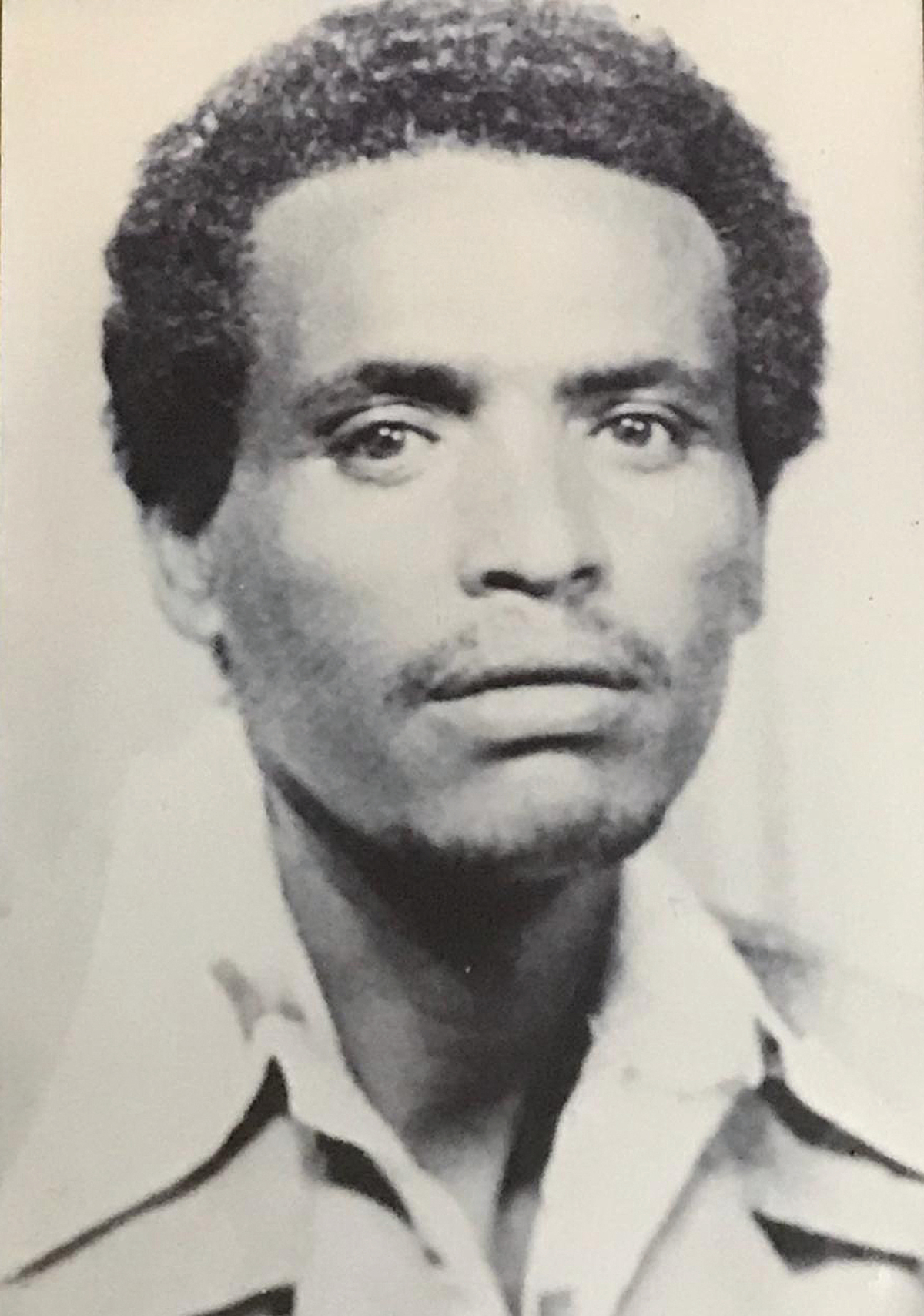
In the early-1980s, my parents heard that there was a way to reach Jerusalem through Sudan. It was just a rumour, but we were told that once you got there you would reach the holy city.
My parents did not think twice. The desire burned within them to fulfill the dream of past generations– even if it would involve paying a heavy price.
And, just like that, one night we left with everything we had. Our possessions, house, animals and land stayed behind as we set out on our journey to Jerusalem.
No one knew where it was or how long it would take us to get there, but as Jews we had a strong and ingrained faith in God.
But there was huge sorrow and loss on this jouney, for as we travelled from the village of Tegedee to the village of Dansha, my baby brother Neguise died. We were forced to bury him on the way and then keep going.
It was the toughest journey and, over the course of several weeks, we walked mainly during the night and rested in the day, while running away from thieves, soldiers, and policemen who could have arrested us.
It was three weeks before we reached the border of Sudan, where we met members of Mossad who directed us to one of four refugee camps in Sudan. My family were put in the Gadrif refugee amp without knowing how long we would have to be there or whether we would survive the harsh conditions at the camp as our lives there were indescribably difficult.
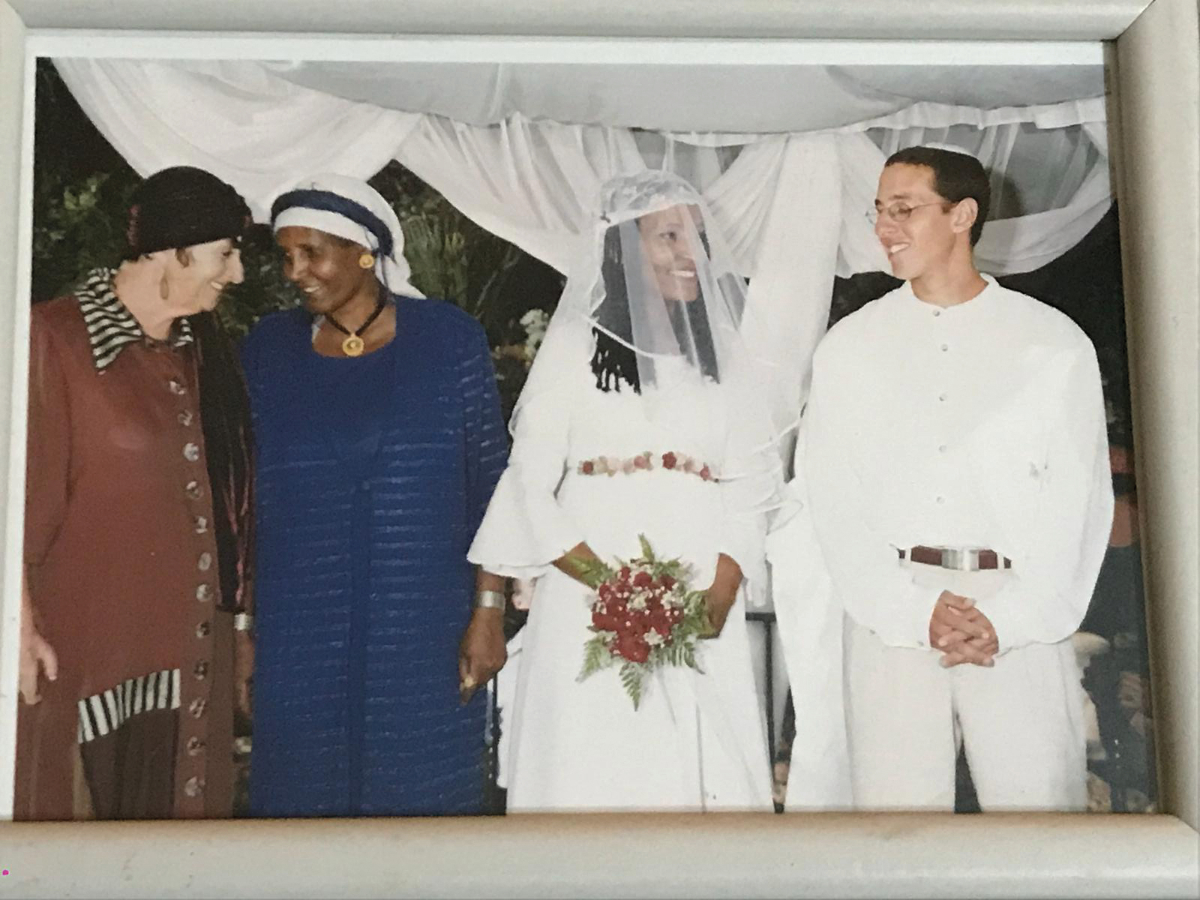
Many people – mainly babies and the elderly – died each day from diseases. The sanitary conditions were terrible. Many Jewish families who survived the journey from Ethiopia and reached Sudan ended up losing family members in the camps.
My family was lucky enough to be in the Sudanese camp for only six months and even under those horrible conditions we observed the laws of Judaism regarding Shabbat and kashrut. And each day we woke up hoping that this would be the day that we would hear we were going to Jerusalem.
Thinking back, it is remarkable that my parents still had faith after losing Neguise, as they had no time to fully comprehend the trauma and, in Sudan, we were moved from one camp to another in order to survive and get through it without losing any more family members. Each day was a challenge. We woke up with the goal of surviving that day.
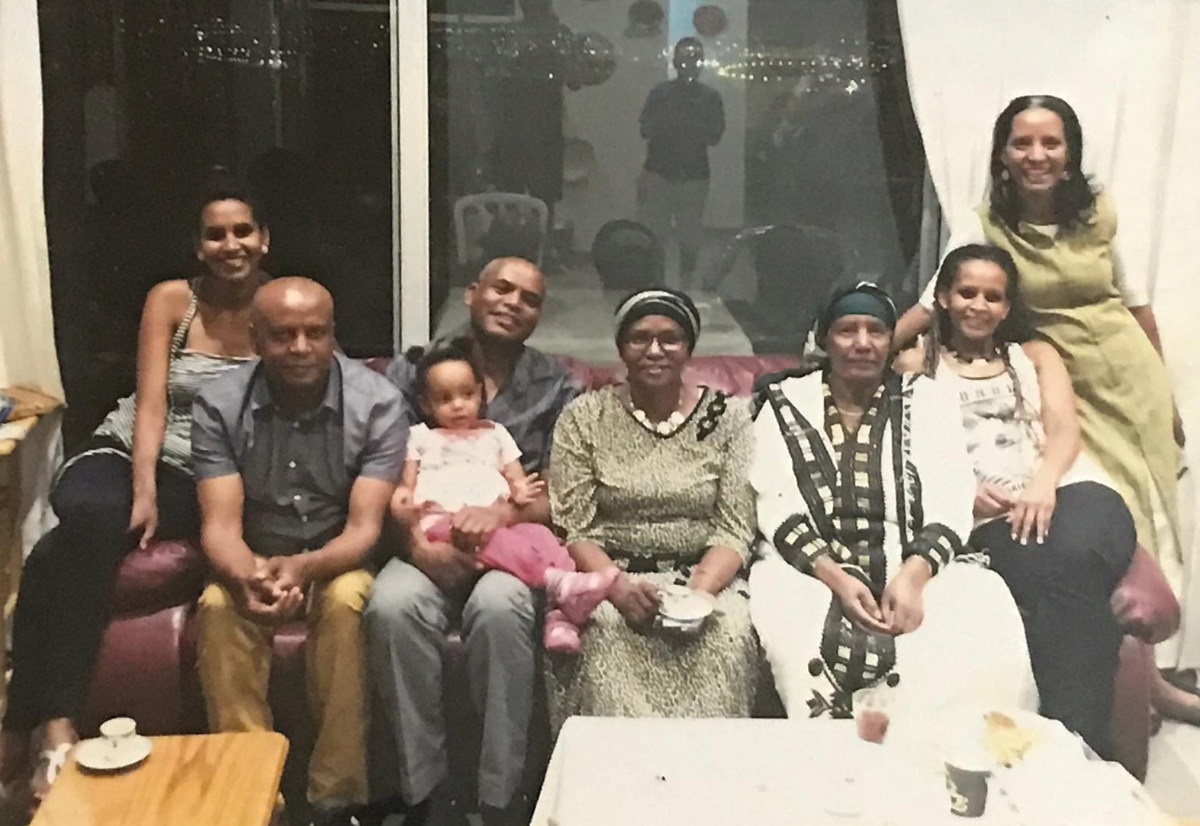
It was Shabbat evening during Chanukah that the dream became a reality. All of a sudden, the door opened and a well-known Jewish activist stood there and asked, “You’re still here?!”
Suddenly we realised – the time had come. We were going to Jerusalem!
My father instructed us to hurry and follow the man. We left everything behind – our bags remained and the table set with food still on it. My mother had just enough time to bundle some dabo (Ethiopian bread) in a package. And, just like that, we got up and left – to go to Israel.
The next morning, Shabbat morning, we were at an immigrant absorption centre in Nazareth Illit, eating the dabo for our Shabbat meal.
The process of acclimatising to life in Israel was not easy – mainly for my parents.
One of my memories from those first days took place on the following Shabbat – our first in the Holy Land. We were incredibly excited. We woke up that morning, put on our white clothes, and went outside. We had expected that on Shabbat in Jerusalem, everything would come to a stop like it did in Ethiopia. But that is not how things were.
We saw that cars continued to drive and people walked around and were involved in their everyday activities as usual. Then we understood that – unlike in Ethiopia – there are many ways to be a Jew aside from the path of being a religious Jew in Ethiopia who observes the laws of the Torah.
The acclimatisation continued and, in effect, continues until today through our struggle to find our equal place in all facets of Israeli society – employment, education, academics, etc.
The journey to Jerusalem as a geographical location came to an end, but the journey to the “conceptual” Jerusalem – a journey that strives to build an exemplary and equal society – continues.
Through our activities at Olim Beyahad, we are working to create this social reform.
Olim Beyahad: The Facts
Olim Beyahad was established in 2007 with the aim of changing Israeli society’s misperceptions and negative attitudes towards the Ethiopian Israeli community through facilitating the suitable employment integration of outstanding Ethiopian Israeli university graduates at the forefront of Israel’s workforce. Over the past 10 years, Olim Beyahad developed into a leading organisation, ensuring equal opportunities for the Ethiopian community and significantly impacting Israel’s workforce and the community’s employment integration. About 900 Ethiopian Israeli university graduates integrated into suitable jobs through its programmes, while they formed a network of 1,500 employers and 2,500 volunteers who committed to advancing their mission by hiring participants and volunteering within their activities. Olim Beyahad also received multiple awards and recognition for its effective employment integration activities.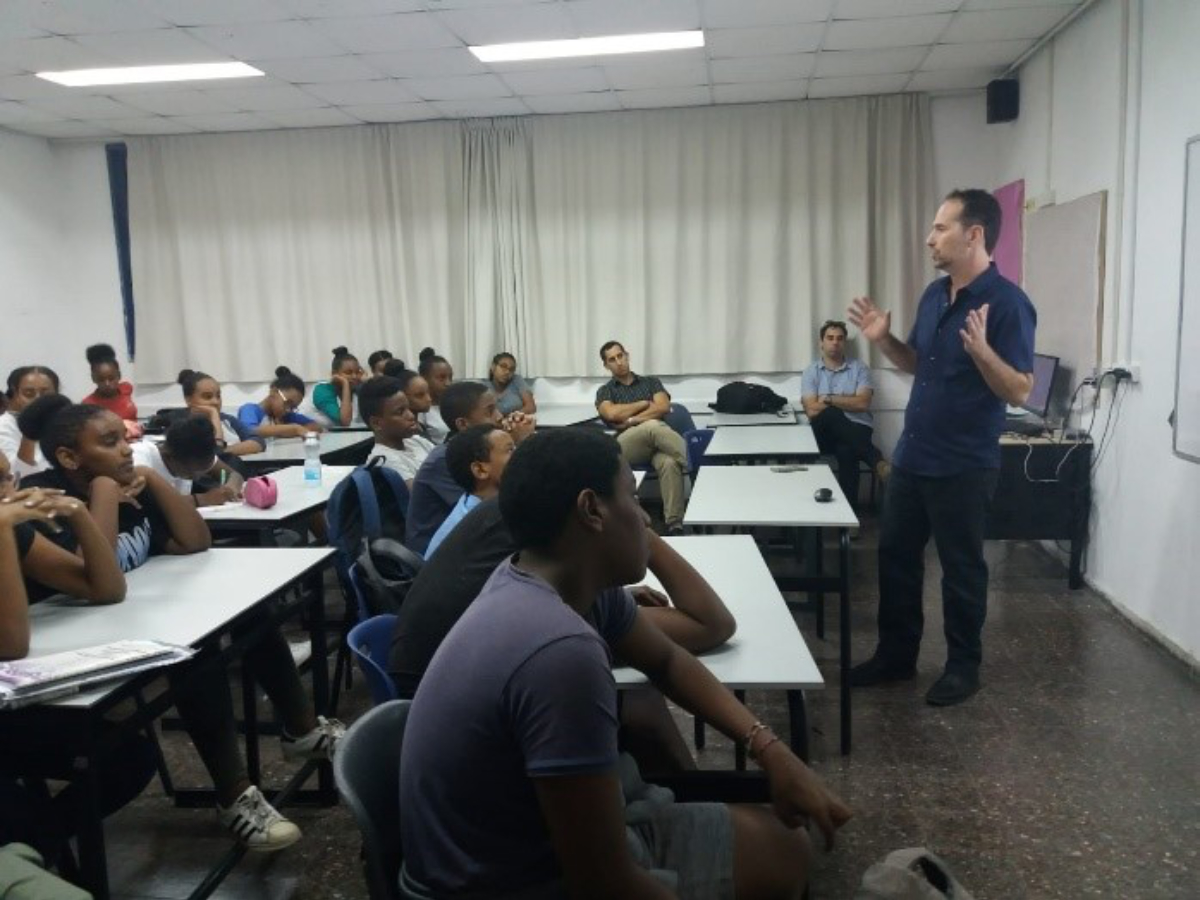
Yet, despite its achievements,the charity has yet to achieve its ultimate mission of achieving the reality of the Ethiopian community being fully integrated into all facets of Israeli society.
This understanding goes hand in hand with its longstanding stance that the difficulties faced by Ethiopian Israelis in integrating into Israel’s workforce and society as a whole will only be solved through addressing “both sides of the coin” – on the one hand society must work with the Ethiopian community to provide its members with the tools to use their potential, and on the other hand it must work with society to reduce stereotypes, prejudices, and misconceptions to form a foundation for the proper absorption and integration of Ethiopians and reduce racism, discrimination, and inequality towards them and minorities in general.
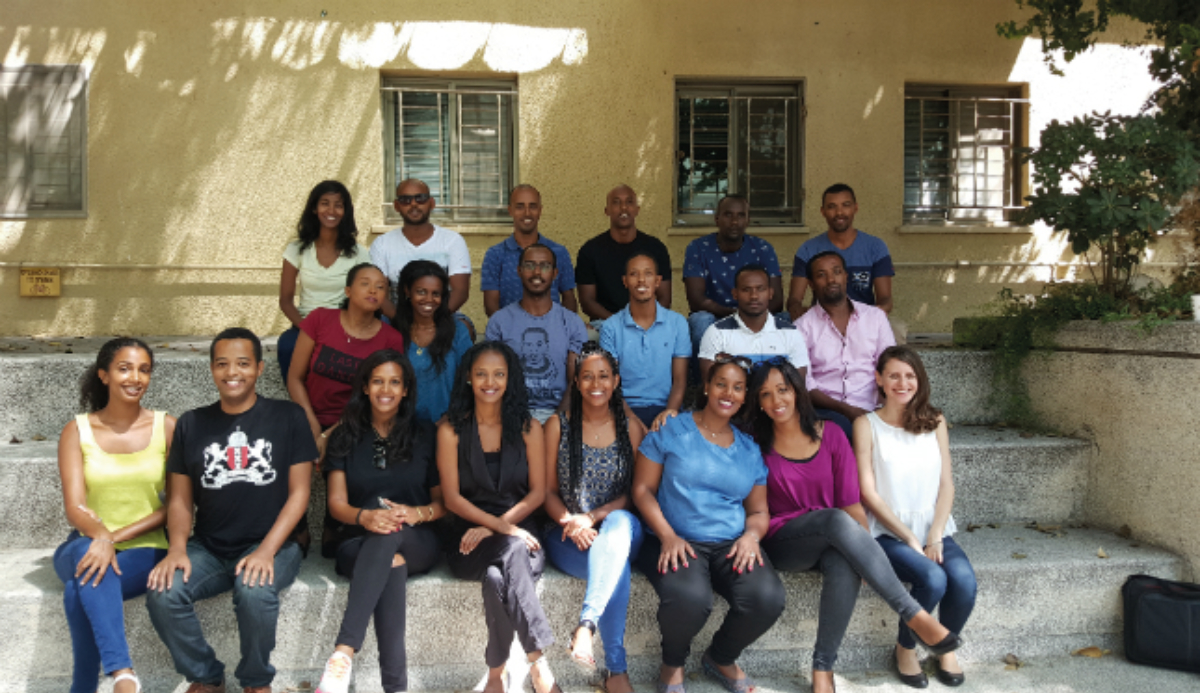

Thank you for helping to make Jewish News the leading source of news and opinion for the UK Jewish community. Today we're asking for your invaluable help to continue putting our community first in everything we do.
For as little as £5 a month you can help sustain the vital work we do in celebrating and standing up for Jewish life in Britain.
Jewish News holds our community together and keeps us connected. Like a synagogue, it’s where people turn to feel part of something bigger. It also proudly shows the rest of Britain the vibrancy and rich culture of modern Jewish life.
You can make a quick and easy one-off or monthly contribution of £5, £10, £20 or any other sum you’re comfortable with.
100% of your donation will help us continue celebrating our community, in all its dynamic diversity...
Engaging
Being a community platform means so much more than producing a newspaper and website. One of our proudest roles is media partnering with our invaluable charities to amplify the outstanding work they do to help us all.
Celebrating
There’s no shortage of oys in the world but Jewish News takes every opportunity to celebrate the joys too, through projects like Night of Heroes, 40 Under 40 and other compelling countdowns that make the community kvell with pride.
Pioneering
In the first collaboration between media outlets from different faiths, Jewish News worked with British Muslim TV and Church Times to produce a list of young activists leading the way on interfaith understanding.
Campaigning
Royal Mail issued a stamp honouring Holocaust hero Sir Nicholas Winton after a Jewish News campaign attracted more than 100,000 backers. Jewish Newsalso produces special editions of the paper highlighting pressing issues including mental health and Holocaust remembrance.
Easy access
In an age when news is readily accessible, Jewish News provides high-quality content free online and offline, removing any financial barriers to connecting people.
Voice of our community to wider society
The Jewish News team regularly appears on TV, radio and on the pages of the national press to comment on stories about the Jewish community. Easy access to the paper on the streets of London also means Jewish News provides an invaluable window into the community for the country at large.
We hope you agree all this is worth preserving.
-
By Brigit Grant
-
By Laurent Vaughan - Senior Associate (Bishop & Sewell Solicitors)
-
By Laurent Vaughan - Senior Associate (Bishop & Sewell Solicitors)
-
By Laurent Vaughan - Senior Associate (Bishop & Sewell Solicitors)
-
By Laurent Vaughan - Senior Associate (Bishop & Sewell Solicitors)


